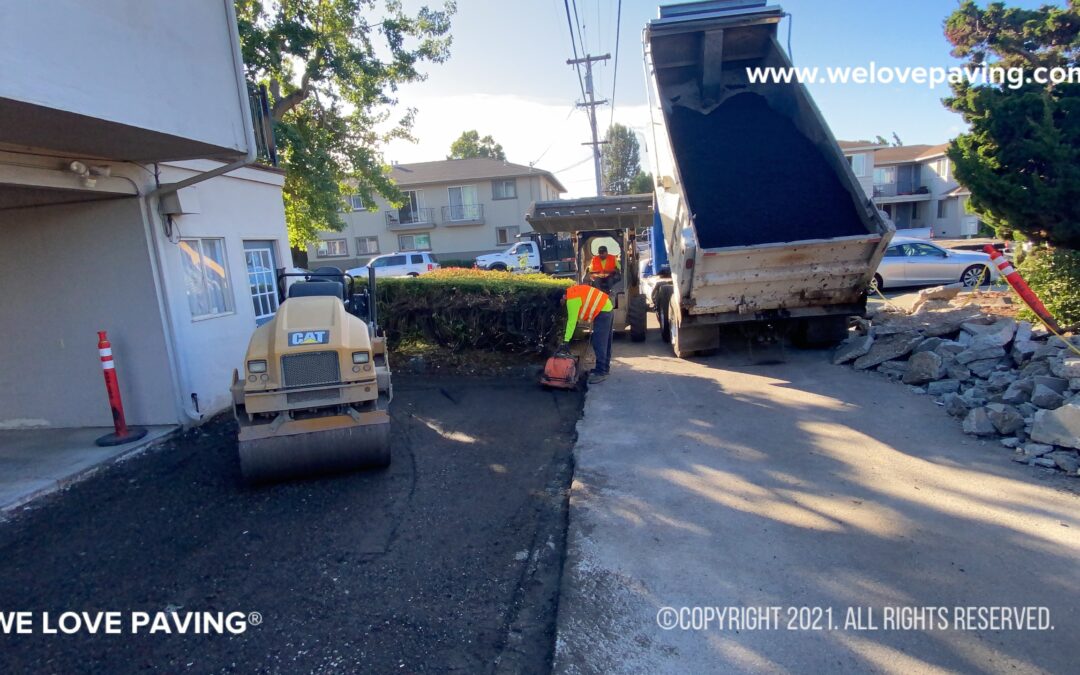
by Arturo TP | May 29, 2024 | Asphalt
Step 1: Planning and Preparation
- Check Local Regulations: Review local regulations and obtain any necessary permits for asphalt paving in San Jose.
- Measure and Plan: Measure the area to be paved and calculate the amount of asphalt needed. Consider factors like slope, drainage, and existing pavement condition.
- Prepare the Site: Clear the area of debris, vegetation, and any existing pavement. Grade the site to ensure proper drainage away from buildings and structures.
Step 2: Base Preparation
- Subgrade Preparation: Compact the soil to create a stable base. Use heavy machinery like rollers or compactors to achieve the desired compaction.
- Subbase Installation: Lay a layer of aggregate subbase material (usually gravel or crushed stone) and compact it thoroughly to create a stable foundation for the asphalt.
Step 3: Asphalt Mix
- Select Asphalt Type: Choose the appropriate type of asphalt mix for your project. In San Jose, California, common types include hot mix asphalt (HMA) or warm mix asphalt (WMA).
- Transport and Temperature Control: Transport the asphalt mix to the site and maintain it at the proper temperature to ensure workability and compaction.
Step 4: Asphalt Placement
- Surface Preparation: Apply a tack coat to the prepared base to promote adhesion between the asphalt layers.
- Asphalt Installation: Use a paving machine to lay the asphalt mix evenly across the prepared surface. Compact the asphalt immediately after placement using a roller to achieve the desired density and smoothness.
- Edge Compaction: Pay special attention to compacting the edges and joints to ensure a seamless transition and prevent water infiltration.
Step 5: Finishing Touches
- Surface Smoothing: Use a finish roller or mechanical screed to achieve the desired smoothness and compaction of the asphalt surface.
- Curing: Allow the asphalt to cure properly according to manufacturer recommendations. This typically involves keeping traffic off the surface for a specified period.
- Striping and Marking: Once the asphalt has cured, apply pavement markings, striping, and any necessary signage according to local regulations and requirements.
Step 6: Maintenance
- Regular Inspections: Periodically inspect the asphalt surface for signs of wear, cracking, or potholes.
- Sealcoating: Apply a sealcoat to protect the asphalt surface and extend its lifespan. In San Jose’s climate, where UV exposure and temperature fluctuations can accelerate asphalt deterioration, regular sealcoating is especially important.
- Repairing Damage: Promptly repair any cracks or damage to prevent water infiltration and further deterioration.
By following these steps and considering the specific climate and regulations in San Jose, California, you can successfully lay asphalt for various projects, ranging from driveways and parking lots to roads and highways. Always ensure safety measures are in place, and consider hiring a professional asphalt contractor for large or complex projects.
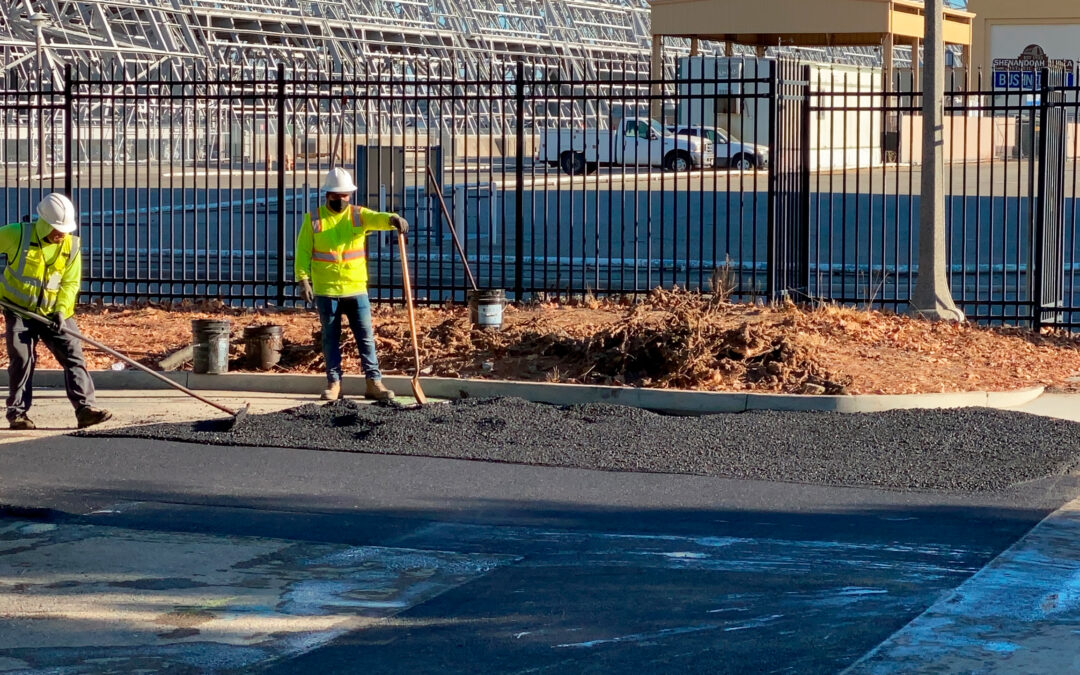
by Arturo TP | May 16, 2024 | Asphalt
Paving a driveway is a significant investment that can enhance the curb appeal, functionality, and value of your property. However, rushing into the paving process without proper preparation can lead to costly mistakes and premature pavement failure. One common question that homeowners face is how long their driveway should sit before paving. In this comprehensive guide, we’ll explore the factors that influence this decision and provide valuable insights to help you plan your driveway paving project effectively.
Site Preparation
Before paving can begin, it’s essential to ensure that the site is properly prepared. This includes clearing the area of any vegetation, debris, or existing pavement. Additionally, the subgrade – the natural soil or aggregate layer beneath the pavement – should be inspected and, if necessary, graded and compacted to provide a stable foundation for the new driveway. Depending on the condition of the site and the extent of the preparation required, this process can take anywhere from a few days to several weeks.
Weather Conditions
Weather conditions play a significant role in determining how long a driveway should sit before paving. Ideally, paving should be done during dry, mild weather to ensure optimal conditions for the installation and curing of the asphalt. Wet or rainy weather can delay the paving process and compromise the quality of the finished pavement. Additionally, extreme temperatures – both hot and cold – can affect the workability and performance of the asphalt mix, necessitating adjustments to the paving schedule.
Subgrade Settlement
After the site preparation is complete, it’s important to allow time for the subgrade to settle properly before paving. This is especially crucial if significant grading or excavation work was performed, as it can cause the soil to shift and settle over time. Allowing the subgrade to settle ensures a more uniform and stable foundation for the pavement, reducing the risk of settlement and cracking in the future. Depending on the soil conditions and the extent of the excavation, subgrade settlement can take anywhere from a few weeks to several months.
Soil Moisture Content
The moisture content of the soil also influences how long a driveway should sit before paving. Excessively wet or saturated soil can lead to poor compaction and stability, resulting in uneven settling and structural issues with the pavement. Conversely, overly dry soil can be difficult to work with and may require additional watering to achieve the desired compaction. By allowing the soil to reach an optimal moisture content before paving, you can ensure better performance and longevity of the driveway.
Permitting and Approval Process
Depending on your location and local regulations, you may need to obtain permits or approvals before paving your driveway. This process can vary in length depending on the complexity of the project and the requirements of the permitting authority. It’s essential to factor in the time needed to secure any necessary permits and approvals when planning your paving project to avoid delays and ensure compliance with local regulations.
Contractor Scheduling
Once all the necessary preparations are complete, you’ll need to coordinate with a reputable paving contractor to schedule the actual paving work. Keep in mind that paving contractors may have busy schedules, especially during peak paving seasons, so it’s essential to book their services well in advance. Additionally, the duration of the paving project will depend on factors such as the size of the driveway, the complexity of the design, and the availability of equipment and manpower. Be sure to discuss your timeline and scheduling requirements with your contractor to ensure a smooth and timely completion of the project.
Conclusion
Paving a driveway is a significant undertaking that requires careful planning and preparation. By considering factors such as site preparation, weather conditions, subgrade settlement, soil moisture content, permitting and approval processes, and contractor scheduling, you can determine how long your driveway should sit before paving. Taking the time to plan your paving project properly will help ensure the success and longevity of your new driveway, providing years of reliable service and enhancing the overall aesthetics and value of your property. So whether you’re planning to pave a new driveway or rehabilitate an existing one, remember that timing is key, and patience pays off in the long run.
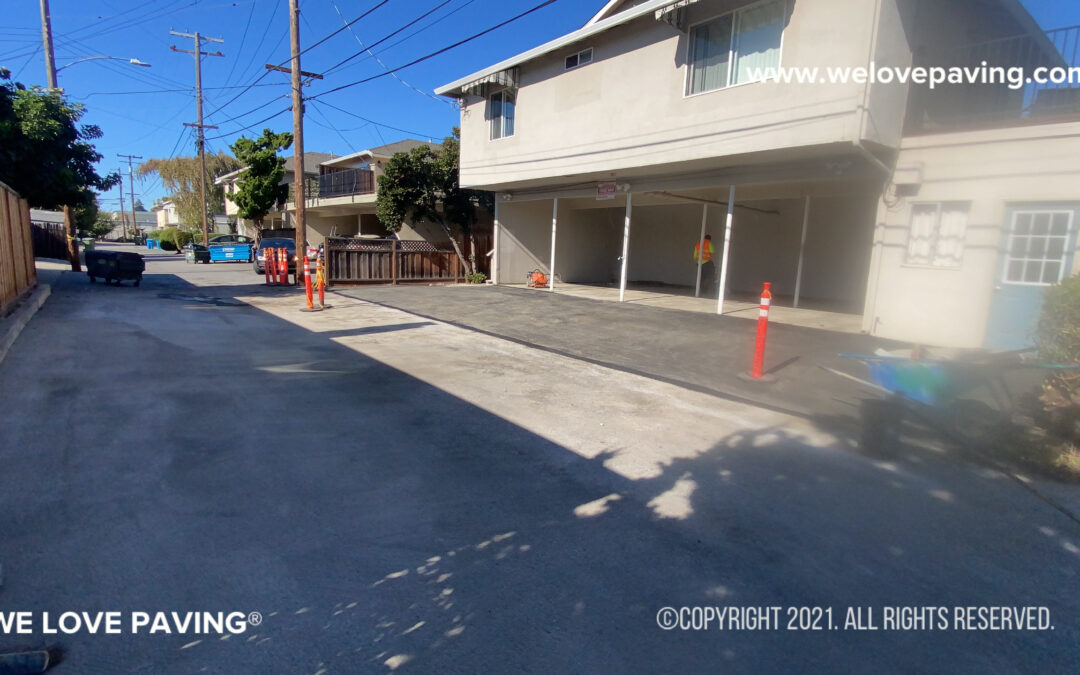
by Arturo TP | Apr 23, 2024 | Asphalt, Paving
In the heart of Silicon Valley, where innovation and modern living converge, every detail of your home matters. From the exterior aesthetics to the functionality of the driveway, homeowners in San Jose, California, understand the importance of making a lasting impression. One often overlooked yet vital aspect of a home’s exterior is the driveway. It’s not merely a pathway to your garage; it’s a statement piece that sets the tone for your property’s overall appeal.
Why Asphalt Paving Matters
Imagine arriving home after a long day’s work to be greeted by a cracked, uneven driveway. Not the most welcoming sight, is it? This scenario highlights the significance of investing in quality asphalt paving. Here’s why it matters:
Curb Appeal
A beautifully paved driveway instantly enhances the visual appeal of your home. Whether you’re planning to sell or simply want to impress guests, a well-maintained driveway can significantly boost your property’s curb appeal.
Durability
San Jose’s diverse climate, from scorching summers to occasional rainfall, can take a toll on traditional concrete driveways. Asphalt paving, however, is renowned for its durability and ability to withstand fluctuating weather conditions without cracking or deteriorating.
Smooth Driving Experience
Ever experienced the jarring sensation of driving over a pothole-ridden driveway? With asphalt paving, you can bid farewell to such discomfort. Its smooth surface provides a seamless driving experience, ensuring convenience and safety for you and your vehicles.
Cost-Effectiveness
Compared to other paving options, asphalt is a cost-effective solution that offers excellent value for money. Its lower initial installation costs, coupled with minimal maintenance requirements, make it an attractive choice for homeowners seeking both quality and affordability.
The Importance of Professional Installation
While asphalt paving offers numerous benefits, achieving optimal results requires professional expertise. Entrusting the installation process to experienced contractors ensures precision, longevity, and adherence to local regulations. Moreover, reputable paving companies use high-quality materials and employ advanced techniques to deliver superior results that withstand the test of time.
Conclusion
Your driveway serves as the gateway to your home, making it an integral part of your property’s overall appeal. By investing in quality asphalt paving, homeowners in San Jose can elevate the aesthetics, functionality, and value of their residences. Whether you’re aiming to impress visitors or simply enhance your everyday living experience, a beautifully paved driveway is a worthwhile investment that pays dividends for years to come.
Ready to Transform Your Driveway? At San Jose Asphalt, we specialize in delivering premium asphalt paving solutions tailored to your specific needs. Contact us today to schedule a consultation and take the first step towards enhancing the beauty and functionality of your home.
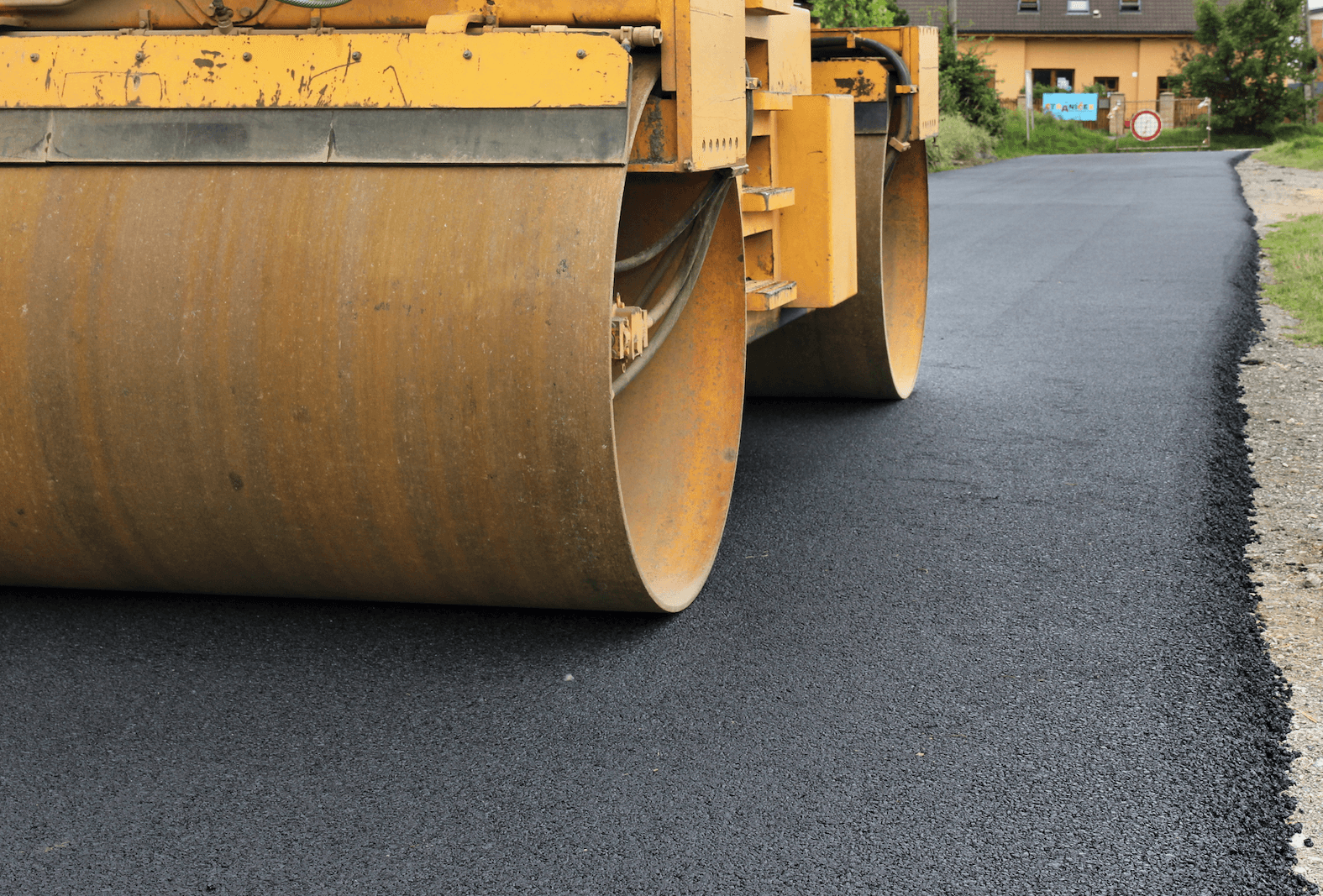
by Arturo TP | Apr 22, 2024 | Asphalt
Welcome readers to We Love Paving and emphasize the importance of accurate cost estimates for parking lot driveway projects in San Jose, California.
Highlight the significance of understanding factors such as material quality, labor expenses, and regional pricing variations.
1. Factors Influencing Asphalt Costs:
Discuss the various factors that influence asphalt costs for parking lot driveways, including material quality, driveway size, layout complexity, labor expenses, and regional pricing variations.
2. Assessing Parking Lot Dimensions:
Provide guidance on accurately measuring the dimensions of the parking lot driveway, considering factors like length, width, and any unique features.
Offer tips for assessing layout complexity, such as slopes, curves, and parking space configurations.
3. Selecting Asphalt Materials and Thickness:
Discuss the different types of asphalt materials suitable for parking lot driveways and their respective costs and benefits.
Offer recommendations for choosing the appropriate thickness of the asphalt layer based on traffic volume and expected usage.
4. Site Preparation and Labor Costs:
Outline the essential site preparation steps required for parking lot driveway projects, including excavation, grading, and compacting.
Explain how labor costs are determined and provide insights into budgeting for site preparation and installation.
5. Regional Pricing Considerations in San Jose, California:
Explore regional factors that influence asphalt pricing in San Jose, such as climate, demand, and local regulations.
Provide tips for obtaining accurate cost estimates from local asphalt suppliers and contractors specific to parking lot driveway projects.
6. Obtaining Quotes and Budgeting:
Offer practical advice on obtaining quotes from multiple reputable asphalt contractors for parking lot driveway projects.
Provide a budgeting framework, including considerations for contingency funds and financing options for commercial projects.
7. Conclusion:
Summarize the key points covered in the guide and emphasize the importance of thorough planning and research for parking lot driveway projects.
Encourage readers to use the information provided to make informed decisions about their parking lot driveway projects in San Jose.
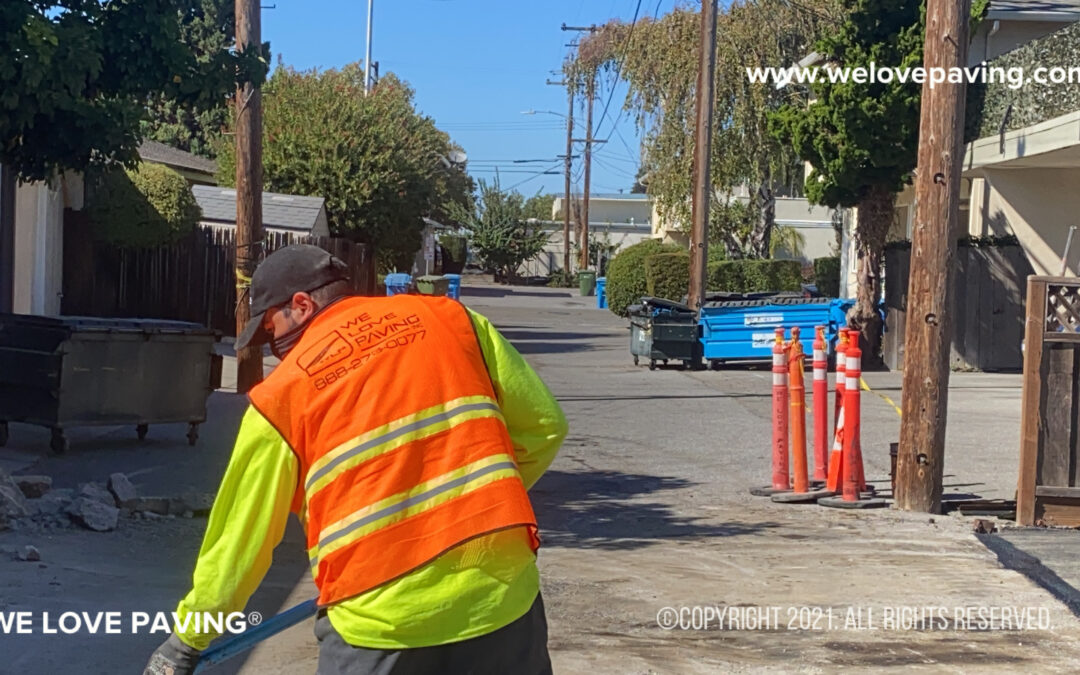
by Arturo TP | Apr 18, 2024 | Asphalt, Paving
Nestled in the heart of Silicon Valley, San Jose boasts innovation at every corner. However, when it comes to the city’s infrastructure, one material stands out as a cornerstone of reliability: asphalt. From sleek highways to well-manicured driveways, asphalt paving plays a vital role in keeping San Jose moving forward. In this article, we’ll explore the numerous benefits of asphalt paving and provide valuable tips for property owners looking to invest in quality pavement solutions.
Durability and Resilience
San Jose’s diverse climate, characterized by mild summers and occasional rainfall, demands pavement solutions that can withstand the elements. Asphalt paving offers unmatched durability and resilience, capable of enduring heavy traffic, temperature fluctuations, and moisture without compromising its integrity. Whether it’s a bustling thoroughfare or a quiet residential street, asphalt provides a smooth and reliable surface year-round.
Cost-Effectiveness
For property owners in San Jose, cost-effectiveness is a key consideration when investing in pavement solutions. Asphalt paving presents a compelling value proposition, offering lower initial installation costs compared to alternatives like concrete. Moreover, its ease of maintenance and repair translates to long-term savings, reducing the need for frequent and costly interventions.
Environmental Sustainability
In a city known for its commitment to sustainability, asphalt paving aligns perfectly with San Jose’s green initiatives. Modern asphalt technologies, such as recycled asphalt pavement (RAP) and warm-mix asphalt (WMA), minimize environmental impact by conserving natural resources and reducing greenhouse gas emissions. By choosing asphalt, property owners can contribute to a greener future while enjoying superior pavement performance.
Smooth and Safe Surfaces
Smooth rides are synonymous with San Jose’s well-maintained roads and driveways. Asphalt paving ensures safe and comfortable surfaces for motorists, cyclists, and pedestrians alike. Its smooth texture reduces noise pollution, enhances vehicle traction, and minimizes the risk of skidding, promoting safer transportation experiences throughout the city.
Enhancing Curb Appeal
First impressions matter, especially in a city as dynamic as San Jose. Asphalt paving enhances the curb appeal of residential, commercial, and industrial properties, adding aesthetic value while improving functionality. Whether it’s a pristine driveway that welcomes guests or a professionally paved parking lot that leaves a lasting impression, asphalt elevates the overall look and feel of any property.
Tips for Property Owners
- Choose Quality Contractors: When embarking on asphalt paving projects, select reputable contractors with extensive experience in San Jose’s unique climate and regulatory requirements.
- Prioritize Maintenance: Regular maintenance, including sealcoating and crack sealing, preserves the longevity and appearance of asphalt surfaces, reducing the need for costly repairs down the road.
- Stay Informed: Stay informed about local regulations and permits related to asphalt paving projects, ensuring compliance with city standards and environmental guidelines.
Conclusion
In San Jose, the path to smoother, safer, and more sustainable infrastructure begins with asphalt paving. From its durability and cost-effectiveness to its environmental benefits and aesthetic appeal, asphalt stands as a testament to innovation on the streets of Silicon Valley. For property owners seeking reliable pavement solutions, choosing asphalt is not just a decision—it’s a commitment to excellence in transportation and beyond.
Ready to pave the way to a brighter future? Contact our team of asphalt paving experts in San Jose today!






